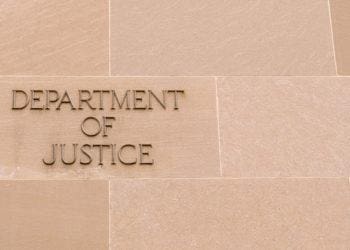The FTC has handed Facebook the largest privacy fine in history. Russ Berland explores how privacy risks in the U.S. are greater than in any other country right now.
The Federal Trade Commission announced a $5 billion settlement with Facebook after a broad investigation by the FTC and DOJ into how the company lost control over massive amounts of personal data and misled its users. It is the largest fine in FTC history — and many times larger than any privacy fine anywhere in the world. Importantly, the FTC settlement not only imposed a fine, but also mandated how Facebook would need to manage its privacy and third-party relationships to avoid further fines from the FTC.
Facebook agreed to the $5 billion settlement after years of damaging admissions about the company’s privacy practices, such as the inadvertent exposure of up to 87 million users’ information to the political analysis firm Cambridge Analytica, as well as misleading privacy notices. The settlement resolves a formal complaint by the FTC alleging that Facebook “used deceptive disclosures and settings” that were unfair and deceitful practices against users’ privacy and violated a prior agreement Facebook had signed with the FTC in 2012.
“The magnitude of the $5 billion civil penalty we have imposed is unprecedented in global privacy enforcement. This penalty is more than 200 times greater than the largest privacy penalty previously imposed in the United States and is more than 20 times greater than the largest fine imposed in Europe, pursuant to the General Data Protection Regulation,” said Chairman Joseph Simons in a recent FTC press conference. “The enormity of this penalty resets the baseline for privacy cases and serves as an important deterrent for future violations.” Chairman Simons also stated that the Facebook order “requires greater oversight of third parties.”
The order not only establishes the record-setting fine amount, but also establishes privacy program requirements. Commissioner Noah Joshua Philips stated:
“This is a watershed moment in privacy enforcement and privacy governance.”
Regarding the broader implications of the settlement to other companies doing business in the U.S., Commissioner Philips said, “The price of privacy violations just went up” and “Management matters. Governance matters … in the context of privacy.” His specific advice to companies after the Facebook settlement is, “paying attention to privacy issues is something companies ought to consider whether to elevate to the board level. … Is privacy an increasingly important issue on which all firms should focus from an oversight perspective, from a management perspective? Absolutely!” He also stated that firms following this advice would, “focus the board on privacy in a way that it focuses on audit and executive compensation, which boards take very seriously.”
The FTC settlement requires Facebook to establish a program to oversee the privacy and security obligations of third parties and app developers. The order states that Facebook must “select and retain service providers capable of safeguarding” Facebook users’ personal information and “contractually require service providers to implement and maintain safeguards” for that information. For any app developer who is purchasing Facebook users’ personal information for their own purposes, the developer is required to self-certify that they are meeting stringent privacy and security requirements. Facebook has extensive monitoring requirements for these developers, including manual reviews, automated scans, regular assessments, audits and technical or operation tests at least every 12 months. In addition, these third-party relationships must be addressed in Facebook’s privacy risk assessments and privacy program design, implementation, annual evaluation and enhancement.
After the $5 billion Facebook settlement, the U.S. has now overtaken Europe as the jurisdiction with the greatest privacy risks. This fine is larger than any hypothetical fine possible under the EU’s GDPR. Because of the U.S.’ patchwork, segmented and now state-by-state approach to privacy, it is more complex to meet privacy requirements in the U.S. than in the comprehensive data protection framework in the E.U.
And now, the costs of not meeting those requirements just went up – way up. In addition, on January 1, 2020, every company doing any business in California will have to determine whether they are covered by the new California Consumer Privacy Act, with its own requirements and large penalties. Plus, 16 other states are now in the process of enacting privacy statutes similar to California’s. Operationally, this would be an ideal time to review how privacy is addressed in the organization, as well as the design, implementation and evaluation of that privacy program.
If the FTC is to be believed, privacy is now a priority corporate risk deserving of the board’s and executives’ attention.



 Russ Berland is a seasoned leader who creates value in an organization by leading high-performance teams in law, compliance and risk management. He works with innovative, multinational organizations and has achieved measurable and timely results in the areas of law, compliance, strategic planning, international business and risk management. As an engineer and former federal court law clerk, he achieves business objectives and solves problems via deep experience, innovation with sound judgment and effective and efficient management of people, resources and costs. Russ is Chief Compliance Officer of
Russ Berland is a seasoned leader who creates value in an organization by leading high-performance teams in law, compliance and risk management. He works with innovative, multinational organizations and has achieved measurable and timely results in the areas of law, compliance, strategic planning, international business and risk management. As an engineer and former federal court law clerk, he achieves business objectives and solves problems via deep experience, innovation with sound judgment and effective and efficient management of people, resources and costs. Russ is Chief Compliance Officer of 








